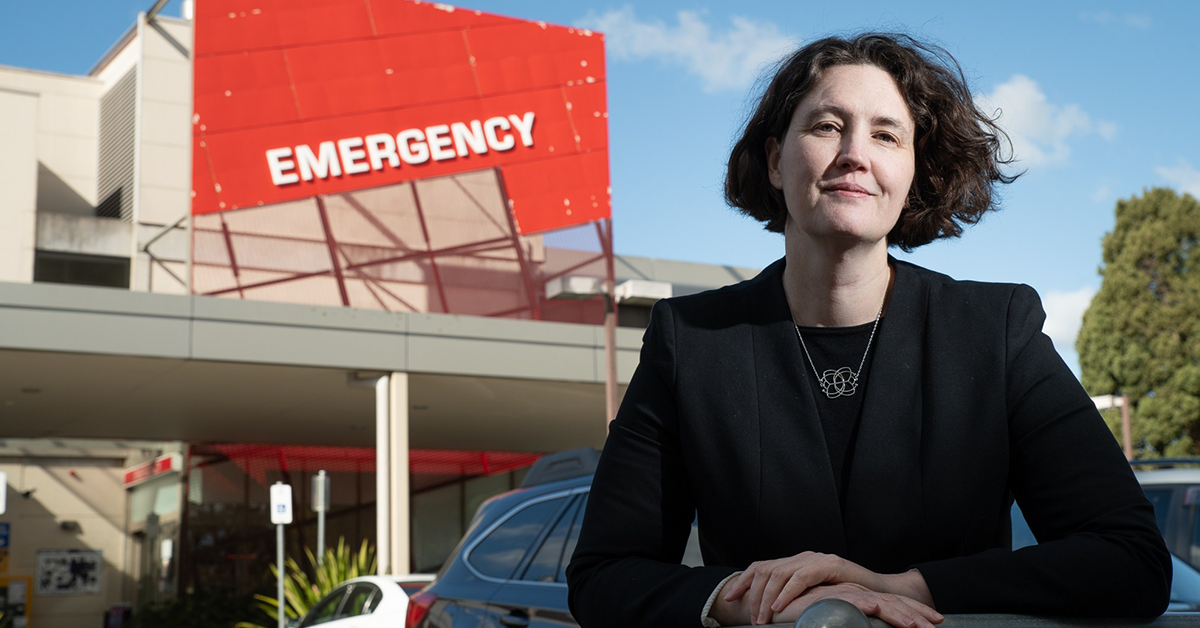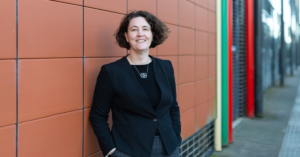
A specialist emergency physician by training, with close to 20 years of clinical experience, Dr Skinner chose Emergency Medicine because, along with being a great people person, she enjoys solving complex problems and thinking on her feet.
Dr Skinner explains the Emergency Department’s role, the changes and trends defining urgent care in Australia and what is like to work the Emergency Department (ED).
The role of Emergency Medicine: The Intersection between Hospitals and the Community
Emergency Medicine is a diagnostic specialty concentrating on acute patient care. It is a relatively new specialist area of medicine, developed mid-20th Century when the need for a team of clinicians with specialist training in management of undifferentiated urgent health problems emerged. Before we had EDs, patients were managed by their General Practitioners (GPs) in direct consultation with hospital-based physicians and surgeons.
Dr Skinner explains the Emergency Department as the intersection between the Hospital and the community. The department’s role is to diagnose the medical concern causing the person to present and then determine the best acute treatment before guiding people to their next stage of care.
“We get urgent treatment started and then set people on a pathway for further care. Around 70% of patients who present to EDs are discharged home, so we transition their care back to their general practitioner and other community-based health professionals. Around 30% of people will be admitted to hospital, so we organise referrals to inpatient specialty teams” says Clare.
Changes and trends in Emergency Medicine
Trends over recent years have changed the way the Emergency Department cares for our community.
Most significantly, departments have got busier and more crowded. Specifically, there has been increased need for access by patients over 65, more people presenting with chronic and complex illness, and increasing presentations by people with acute drug, alcohol and mental health needs.
These trends are reflective of both our ageing population and the current societal landscape.
Older patients presenting to the ED will usually have several underlying conditions or concerns contributing to their symptoms. Emergency clinicians are now solving more complex diagnostic and social problems for these patients.
The increase in drug, alcohol and mental health presentations, is a direct reflection of the societal landscape and challenges affecting our community. This trend is a strongly indicative snapshot of what is happening in our community, Dr Skinner explains.
As we navigate COVID-19 and its impact on our society, we see these trends continue. Since March, EDs have seen a rise in socially complex presentations, particularly in regards to child and adolescent mental health and domestic violence.
Emergency Medicine is adapting to these changes to better care for our community.
EDs are increasingly admitting patients to ‘Emergency Department Short Stay Units’ (generally keeping patients for up to 24 hours for treatment, observation, assessment and reassessment) and ‘Hospital in the Home’ services, while previously they would have been admitted into Hospital. This means emergency clinicians now have more comprehensive involvement in patient care.
“The Emergency Department is the front door to the hospital system. Working in ED puts you in a good position to be able to see what does and what doesn’t work and improve the way people experience the health system” says Clare.
Life in Emergency – Thank God You’re Here!
Observing a shift in the ED, you would typically see doctors and nurses having a hand over in the morning to discuss the patients and their team-based care.
The triage scale classifies people according to their urgency, and the in-charge doctor and nurse will assign that patient’s care to specific clinicians. Patients are assessed, tests ordered, treatments prescribed, and a decision on the next stage of care made. Documentation is completed to facilitate this, and the patient is either admitted or discharged with guidance on their next stage of care.
However, Clare considers a shift working in the ED is like a medical version of ‘Thank God You’re Here‘!
“We see patients of all ages at Hornsby Hospital, we never know what presentations we will see, how many or how complex. But the good thing here is that you’re never alone, you can always ask someone for help – it’s team-based care which is fantastic.
It’s what makes Emergency Medicine really satisfying; we are rooted in the community. But what I think is true in every ED, especially for those I’ve worked in, is that staff in Emergency Departments become like family. What we do is quite confronting, and it’s high stress and high stakes so we de-brief and look out for each other”.
Along with the fact that Emergency Departments are becoming busier, there’s often a real perception in the community that people are presenting to the ED with minor illness or injuries and wasting time.
Clare believes this message suggests people shouldn’t visit their local Emergency Department, when in fact most people present with genuine problems that require urgent care:
“My rule of thumb is if you’re worried and you can’t seek your usual care, then we encourage you to come to the Emergency Department. We’re here for when you’re worried and you have an acute health problem. And if it’s something life or limb-threatening, including emotional distress, then you should always come and seek help”.
Remember, in case of an Emergency dial triple zero (000) for Police, Fire and Ambulance.
About Dr Clare Skinner:

Clare is a specialist emergency physician and Director of Emergency Medicine at Hornsby Ku-ring-gai Hospital. She has worked in Emergency Medicine for nearly 20 years – mostly with the Northern Sydney Local Health District, doing the majority of her training as a student at Royal North Shore Hospital. She has worked in many Emergency Departments throughout her career so far in NSW and the ACT.
Clare will soon become the next President of the Australasian College for Emergency Medicine (ACEM) where she will be lead for emergency physicians in Australia and New Zealand as well as work in the education, policy and advocacy space – creating more positive change in more Emergency Departments bi-nationally.
Clare will remain based at Hornsby Hospital doing clinical work and seeing patients.
Learn more about Clare by having a look at her website https://clareskinner.com/
The NORTH Foundation is the official fundraising and engagement partner for the Northern Sydney Local Health District including Royal North Shore, Ryde and Hornsby Ku-ring-gai Hospitals as well as the Kolling Institute of Medical Research.

